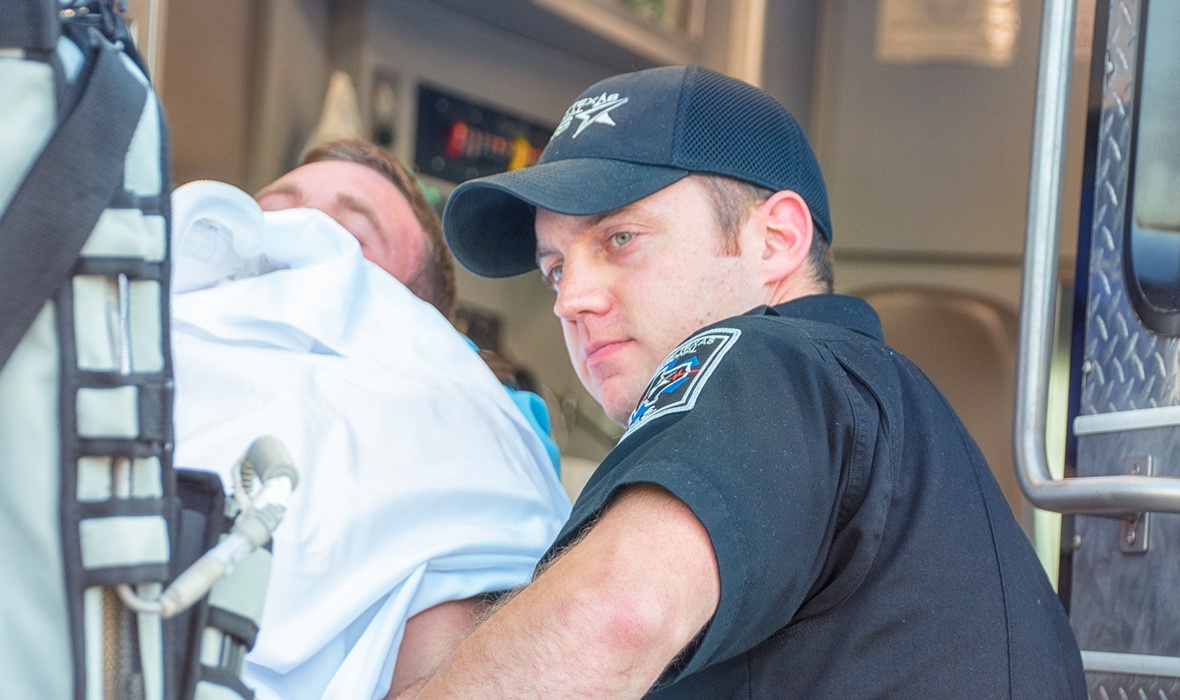Pulsara Around the World - February 2026
January Recap The start of 2026 was on the slow side for our events schedule, with our team heading to the Florida Fire & EMS Conference, the...
2 min read
 Team Pulsara
:
Jun 01, 2018
Team Pulsara
:
Jun 01, 2018

EDITOR'S NOTE: Special thanks to Shane Elmore for writing today's blog post. Shane served as Pulsara's Vice President for Clinical Innovation and Development from 2013-2022. You can connect with him on LinkedIn.
—
What is loss aversion and how does it impact us in healthcare?
In cognitive psychology and decision theory, loss aversion refers to people's tendency to prefer avoiding losses to acquiring similar gains: it is better to avoid losing $5 than it is to find or gain $5.
The loss aversion mindset is widespread in healthcare, and it makes sense. I've noticed as I've met with customers that they are in love with the process that they've worked so hard to create. I know because I've been there! You put a lot of blood, sweat, and tears into making things work and work well.
To make matters worse, you put in all of this hard work when things were a mess. When starting a program like STEMI, Stroke or Trauma, the whole idea is to bring order out of chaos. Your job is to provide some level of predictability in an environment that is unpredictable in nature. You've likely lived through those tumultuous times and, more than anything, you just don't want to go back.
Fast forward a few years and you have moved from chaos to order and all things are well in your world. You go to work every day, and no matter how bad your day is, you can think back and remember when every day utter chaos. This is why when a company like Pulsara comes in and does a demo, your blood pressure goes up and you start having nervous ticks.
"We finally have things working here, and I don't want to change anything," you're probably thinking to yourself. It's the fear of the unknown, fear of failure, and fear of change that drives a lot of what we do, especially in healthcare where people’s lives are at stake.
We think about all of the things that could go wrong, and we combine that with our historical perspective of the chaos we lived through in the early days, and we ultimately choose not to do anything at all. Why? Because “If it ain't broke, don't fix it” is the motto we live by.
In the meantime, the fear of not losing what we have gained is holding us back from being the best that we can be for our patients. The result is a plateau in your performance. You compare yourself to where you used to be, and you compare yourself to health systems that you outperform, and you get complacent.
This isn't a process problem.
This isn't a patient care problem.
This isn't a knowledge problem.
This isn't a technology problem.
This is a framing problem.
Regardless of how many awards you have, how many billboards say you’re top in the country, how many other facilities wish their times were as good as yours, you can always be better than you are now. With the modern tools and resources available to you today, you need to understand that if you're not getting better, you're losing. If you're not improving, you're standing still, and your competitor will pass you by.
So if you’re beginning to feel left in the dust, or like you’re at a standstill in your performance, take a hard look at how you frame your successes and losses. When your facility has successes, do you congratulate yourselves and leave it at that? Or do you take a harder look and try to identify what else could be done to do more of that? Are you open to the transient inconvenience of changing the way you do things and have always done things for the sake of ultimately arriving at a much better process with better patient outcomes? Don’t let loss aversion make your team any less than they have the potential to be.

January Recap The start of 2026 was on the slow side for our events schedule, with our team heading to the Florida Fire & EMS Conference, the...

Recent research shows how Pulsara was successfully leveraged to connect more than 6,000 COVID-19 patients to monoclonal antibody infusion centers via...

At Pulsara, it's our privilege to help serve the people who serve people, and we're always excited to see what they're up to. From large-scale...